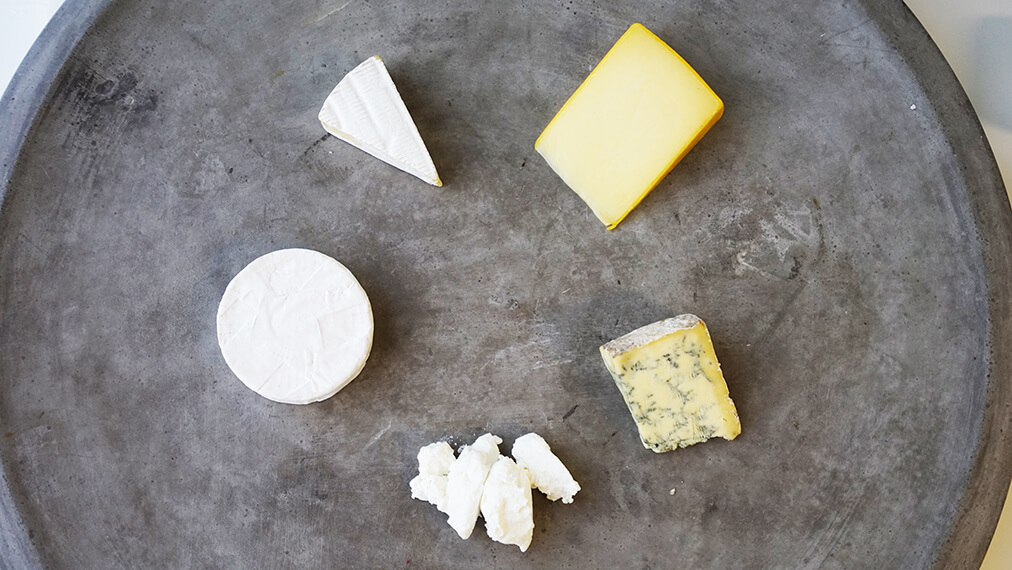7 steps to the perfect cheese board
An entertaining staple, there is no easier show-stopper than a cheese board. Whether you’re preparing an after-dinner spread or the centrepiece for your evening, you’ll be popular with your guests when you present a carefully curated cheese board. These 7 easy steps will help you plan and prepare a cheese board that is certain to impress.
1. The cheese

The trick is to mix it up.
Cater to different tastes by offering a combination of soft and hard textures as well as mild and strong flavours. We recommend choosing at least three to five cheeses of varying milk sources, colours, textures and flavours from the five following categories: fresh, soft, blue and hard. For example, with fresh goat cheese, a sheep’s milk cheese, Président Double Brie, Président Camembert and a blue cheese, you have the prime ingredients for a cheese board that is both visually exciting and impossible to resist!
2. How much?

Too much of a good thing.
It’s easy to get the quantities right if you follow this simple guideline. For pre-dinner or cocktails, allow around 30-35 grams of each style of cheese per person. If the cheese board is the cheese course of a dinner party, around 70 grams per person. If your cheese board is the focus of the party, plan on 150-200 grams per person.
3. Timing

Timing is everything.
The textures, tastes and aromas of specialty cheeses are at their finest at room temperature, so be sure to plan appropriately and take your cheese out of the refrigerator 30 minutes to one hour before serving on your cheese board.
4. The bread

Let cheese be the star.
Strong flavoured and filled bread can overwhelm the flavours of the cheeses you have so carefully selected. So choose fresh, plain bread like baguettes (both sweet and sour), plain crackers, breadsticks or lavash bread that will help complement and bring out the flavours of the cheese.
5. The accompaniments

Think outside the breadbox.
What will really set a cheese board apart is what you serve with it. When considering accompaniments, don’t just go for the same old, same old. Opt for both green and black olives, tapenades, fruit chutneys or preserves, and mustards. Consider cured meats, like Bresaola, Saucisson Sec, Prosciutto di Parma, or Serrano ham. And try sliced fresh, seasonal fruits like apples, pears and figs. Serve accompaniments alongside and not on top of your cheese.
6. Arrange

Start mild, finish strong.
Beginning at the six o’clock position and going clockwise, arrange cheeses from mildest to strongest. For example, start with a soft, fresh goat’s milk cheese, progress to a Brie, then move into more flavourful washed rind, hard, and finally, blue cheeses.
7. Slice it right

Make the cut.
Ideally, each cheese portion should have a part of the rind. Softer cheeses should be sliced lengthwise into wedges with a butter knife or small paring knife, while harder cheeses should be sliced with a chef’s knife or micro plane slicer pulled across the flat surface to obtain paper-thin slices. Use a cheese cutting wire to glide through harder varieties, and spoon soft, runny cheeses into small bowls.
And there you have it, an easy guide to creating a delicious cheeseboard.

